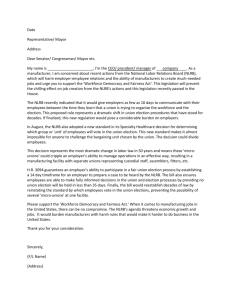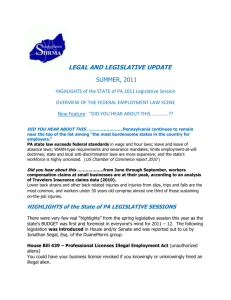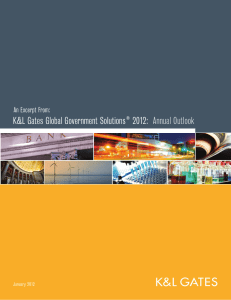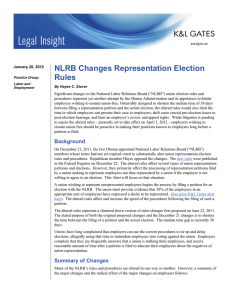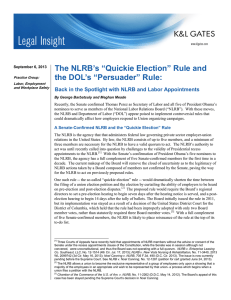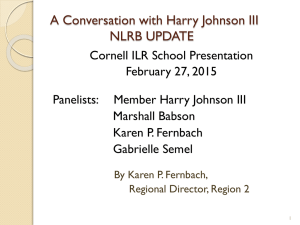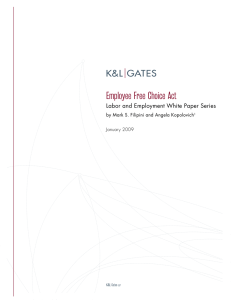Labor and Employment Law Update
advertisement
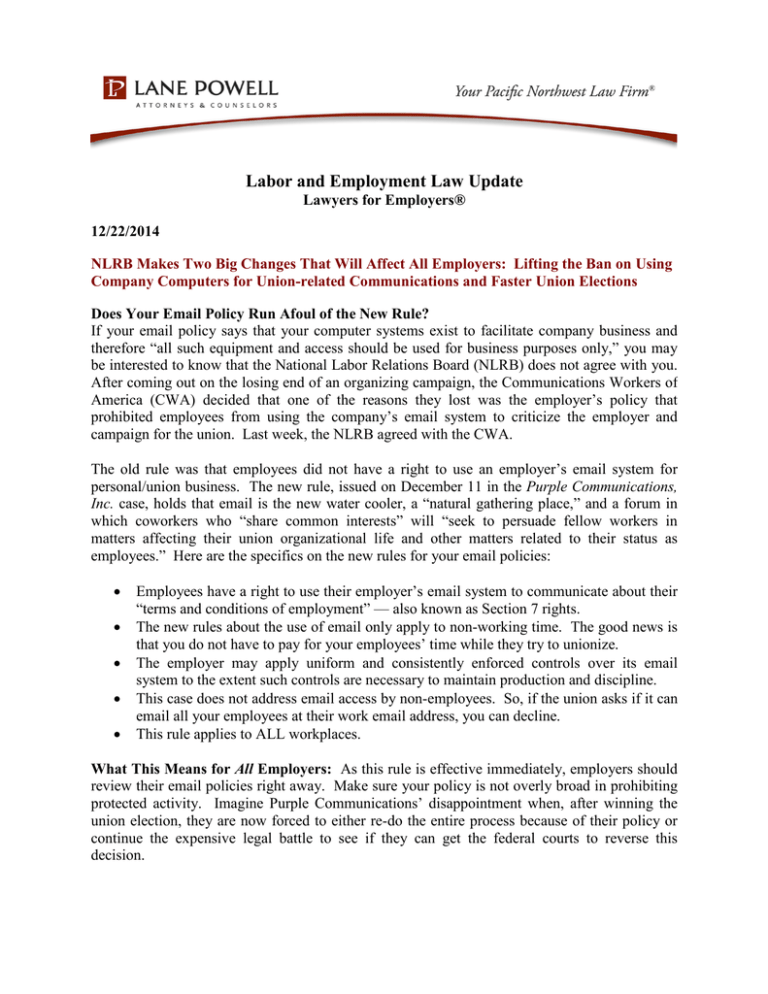
Labor and Employment Law Update Lawyers for Employers® 12/22/2014 NLRB Makes Two Big Changes That Will Affect All Employers: Lifting the Ban on Using Company Computers for Union-related Communications and Faster Union Elections Does Your Email Policy Run Afoul of the New Rule? If your email policy says that your computer systems exist to facilitate company business and therefore “all such equipment and access should be used for business purposes only,” you may be interested to know that the National Labor Relations Board (NLRB) does not agree with you. After coming out on the losing end of an organizing campaign, the Communications Workers of America (CWA) decided that one of the reasons they lost was the employer’s policy that prohibited employees from using the company’s email system to criticize the employer and campaign for the union. Last week, the NLRB agreed with the CWA. The old rule was that employees did not have a right to use an employer’s email system for personal/union business. The new rule, issued on December 11 in the Purple Communications, Inc. case, holds that email is the new water cooler, a “natural gathering place,” and a forum in which coworkers who “share common interests” will “seek to persuade fellow workers in matters affecting their union organizational life and other matters related to their status as employees.” Here are the specifics on the new rules for your email policies: • • • • • Employees have a right to use their employer’s email system to communicate about their “terms and conditions of employment” — also known as Section 7 rights. The new rules about the use of email only apply to non-working time. The good news is that you do not have to pay for your employees’ time while they try to unionize. The employer may apply uniform and consistently enforced controls over its email system to the extent such controls are necessary to maintain production and discipline. This case does not address email access by non-employees. So, if the union asks if it can email all your employees at their work email address, you can decline. This rule applies to ALL workplaces. What This Means for All Employers: As this rule is effective immediately, employers should review their email policies right away. Make sure your policy is not overly broad in prohibiting protected activity. Imagine Purple Communications’ disappointment when, after winning the union election, they are now forced to either re-do the entire process because of their policy or continue the expensive legal battle to see if they can get the federal courts to reverse this decision. Union Election Procedures Now Moving at a Faster Pace They told you it was coming and now it is here. The NLRB proposed new union election regulations intended to take effect April 14, 2015. In response to union complaints that the organizing process favors employers, the NLRB issued rules that “modernize and streamline” the representation process. Today, a union election typically occurs 38 days after the union files a petition with the NLRB. The unions complain that employers use this time to educate their employees and persuade them to vote against the unions. Under the new rules, the election will occur within 14 to 21 days after the petition, but could happen as soon as 10 to 12 days after the petition, hence the term “Ambush Election.” According to the NLRB’s website, the final rule: • • • • • • Provides for electronic filing and transmission of election petitions and other documents; Ensures that employees, employers and unions receive the timely information they need to understand and participate in the representation case process; Eliminates or reduces unnecessary litigation, duplication and delay; Adopts best practices and uniform procedures across regions; Requires that additional contact information (personal telephone numbers and email addresses) be included in voter lists, to the extent that information is available to the employer, in order to enhance a fair and free exchange of ideas by permitting other parties to the election to communicate with voters about the election using modern technology; and Allows parties to consolidate all election-related appeals to the Board into a single appeals process. What This Means for All Employers: There will be quicker elections and more of them. If you have ever heard the adage that employers should always be running non-union campaigns, that is truer now more than ever. Consider training — do your managers know what to do if they hear about a union? Take a look at what you do to maintain open communication with employees and resolve issues when they occur. If employees believe that they need to “hire” a union to get information or answer their questions, they will. And with the new rules, it all may be over before you know it! For more information, please contact the Labor and Employment Practice Group at Lane Powell: employlaw@lanepowell.com This is intended to be a source of general information, not an opinion or legal advice on any specific situation, and does not create an attorney-client relationship with our readers. If you would like more information regarding whether we may assist you in any particular matter, please contact one of our lawyers, using care not to provide us any confidential information until we have notified you in writing that there are no conflicts of interest and that we have agreed to represent you on the specific matter that is the subject of your inquiry. Copyright © 2014 Lane Powell PC Seattle | Portland | Anchorage | Tacoma | London 2
